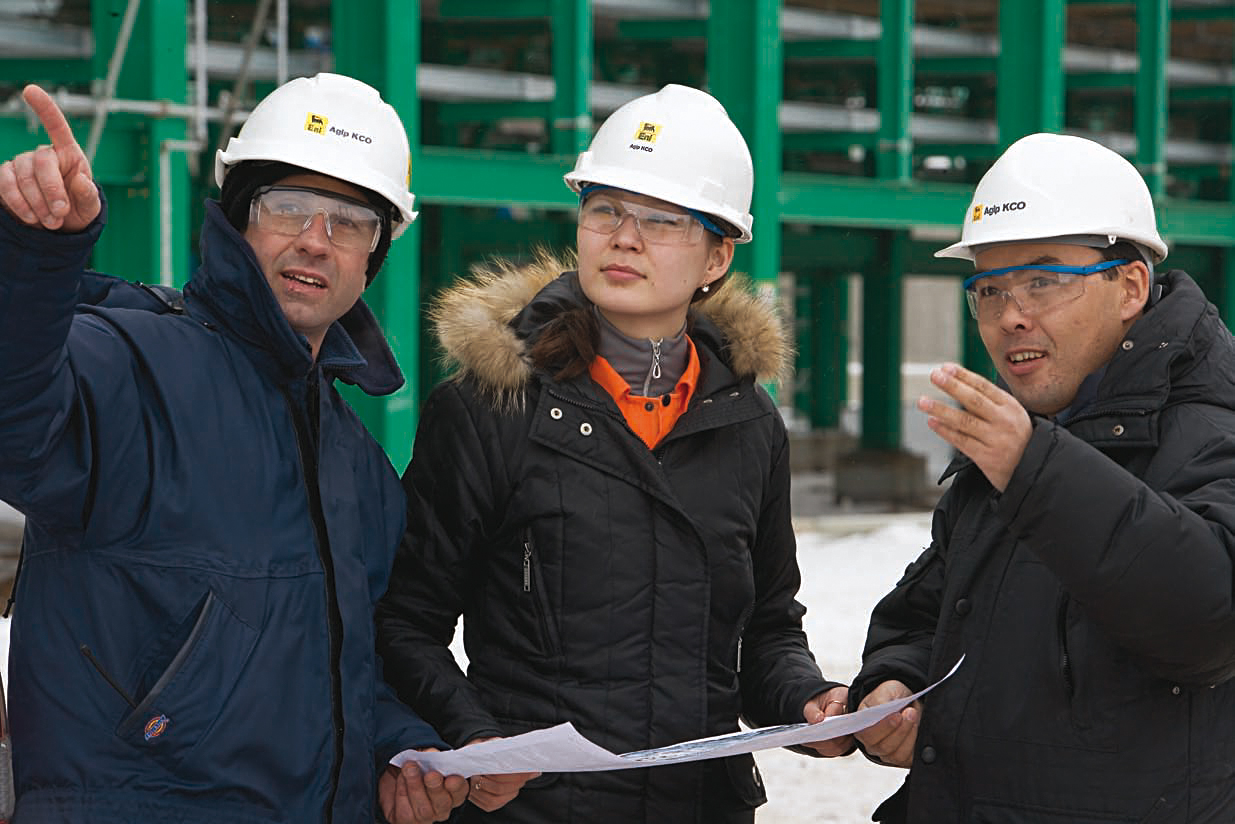
Kazakhstan as Italian Second Pillar in the Post-Soviet Space?
Publication: Eurasia Daily Monitor Volume: 9 Issue: 150
By:

In March 2012, the new Italian technocratic Prime Minister Mario Monti went to Kazakhstan as part of his first diplomatic trip to Asia since assuming the prime ministerial office in November 2011. This Asian tour, nicknamed a “road show” in Italy as its major aim was to promote Italy as an economic brand in Asia (Sole 24 Ore, March 26), had four stops: Kazakhstan, South Korea, China and Japan. Originally, the visit in Kazakhstan was scheduled at the end of this trip, with a bilateral meeting between Monti and Kazakhstan’s President Nursultan Nazarbayev. But for logistical reasons the visit was rescheduled and Monti, on his way to the Seoul, went to Astana for what he defined as a “technical stopover but with a political importance” and met Kazakhstan’s Prime Minister Karim Massimov (Repubblica, March 26). Monti underlined the importance of Kazakhstan for Italy, saying that the country is “important economically but above all from an energy point of view.” The Italian company Ente Nazionale Idrocarburi (ENI) is a major actor in the energy sector in Kazakhstan since the early years of the Central Asian republic’s independence and is particularly involved in the development of the Kashagan and Karachaganak oil field projects. Politically, Kazakhstan considers Italy to be its “main strategic partner in Europe” (Gazeta.kz, May 27, 2011). The two countries signed a treaty on strategic partnership, which was agreed to by President Nazarbayev and former Italian Prime Minister Silvio Berlusconi in 2009 (Tengri News, March 31, 2011).
Given the technocratic nature of his government, Monti has limited room to pursue a truly autonomous foreign policy. His main task has been to carry out the unpopular economic and political reforms that elected governments in Italy were unable to deliver, and improving the dire Italian economic situation remains at the top of his government agenda. His foreign policy, then, is strongly dependent on this political restraint; thus he has not significantly changed the very substance of Italy’s foreign affairs. However, policies of the Monti government on the international scene reveal some politically relevant developments, and the attention on Kazakhstan is a good example. Specifically, it signals the persistence of a longer-term trend: Rome considers Kazakhstan the second political pillar of its strategy of engagement with the post-soviet space, whose core is the close relationship with Russia.
Such firm ties with Kazakhstan could be considered paradoxical and contradictory in a way, if analyzed through some developments of 2011, which would suggest that Baku, more than Astana, should represent the second pillar of Rome’s engagement with the post-Soviet space. In 2011, Azerbaijan represented the most important oil exporter to Italy, and its exports actually allowed Italy to manage the negative consequences of the Arab Spring on its energy needs. According to data provided by the Unione Petrolifera Italiana, in 2011, Azerbaijan’s share of the Italian oil market grew to 18.1 percent from 14.0 percent in 2010 (signaling also longer-term growth, as Baku’s share in 2006 was only 6.5 percent). Libya, which was indisputably the most important oil exporter for Italy over the past few years, strongly suffered because of the internal revolution leading to the overthrown of Muammar Qaddafi, and its oil output sharply shrank: it produced some 500,000 barrels per day in 2011, according to the IMF, down from 1.69 million barrels per day in 2010. Moreover, the oil Libya produced in 2011 went largely for domestic consumption, bringing exports to a near complete halt until October 2011 (IMF, January 2012). Libya’s resultant decline in Italian imports – from 23.1 percent in 2010 to 6.5 percent in 2011 – was counterbalanced by the increase in imports from Azerbaijan, followed by Russia, which made up 15.7 percent. Kazakhstan’s share of Italian oil imports, on the other hand, rose to just 4.2 percent in 2011, up from 3.8 percent in 2010 (UPI, July 2012).
Kazakhstan, however, is at the top of the Italian foreign policy agenda in the post-Soviet space, although Italy is strongly dependent on Azerbaijan for its energy needs in the short-term. How does one explain this apparent contradiction? In fact, three factors can be considered to account for why Italy maintains such a strong focus on Kazakhstan.
Energy Security:
Italy is betting on Kazakhstan as a more reliable “oil player” than Azerbaijan in the medium term. Apart from the proven oil reserves of the two countries, with Kazakhstan having a share of 1.8 percent of global oil reserves (30 million barrels) while Azerbaijan has only 0.4 percent (7 million barrels), there is a general perception that Kazakhstan can be a more reliable oil partner in the longer-term. This is not an absolute novelty for Italy. It was clear already when ENI decided to focus more on Kazakhstan rather than Azerbaijan (see EDM, September 9, 2011). However, negative developments in the oil sector of Azerbaijan over the past two years have somehow raised further concerns that this situation of decline is somehow structural rather than junctural. In the first half of 2012, according to official data, the oil sector of Azerbaijan shrank by 7.1 percent and associated exports declined by 8.2 percent (reflected also in the reduced real GDP growth forecasts on Azerbaijan of many international organizations), confirming a downward trend started in 2011. Generally, maintenance work on platforms and equipment was blamed for these negative developments but there are some more general concerns that the oil sector of the country will suffer increasingly over the coming years (Bloomberg, July 16; EBRD regional report, 2012). Given these trends, oil sector reliability in the medium-term is likely a major element in Italy’s political and economic calculations in the region.
Political Coherence:
The core of Italian foreign policy in the area is based on its relationship with Russia. This is a structural element of Italian foreign policy and did not depend on the special relationship between Silvio Berlusconi and Vladimir Putin. Astana can be considered closer to Moscow than Baku (see EDM, July 23, July 13) and this makes the choice of Kazakhstan as the second pillar of the Italian strategy in the post-Soviet space more coherent with the general foreign policy of Italy in the region.
Export Prospects:
There is a perception in Italy that Kazakhstan will be, in the medium term, a more profitable market for Italian exports than Azerbaijan. Kazakhstan has a larger internal market than the South Caucasian country. It is also experiencing the emergence of a middle class keen to spend, and Kazakhstan possesses a rising upper class, which may be increasingly interested in Italian luxury goods and brands. As Kazakhstani wealth grows, Italy may also become a major tourist destination for well-to-do Kazakhs, reflecting a similar development that occurred with Russia’s upper classes over the past two decades.
In conclusion, although Azerbaijan remains among the most important energy partners of Italy, Kazakhstan has emerged so far as the second pillar of Italian strategy of engagement in the post-Soviet space after its relations with Russia. Rome may undertake some more resolute political steps in order to deepen its relations with Baku in the future. However, Astana is currently a more coherent and functional bilateral regional partner.




